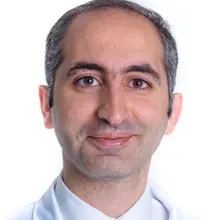ACADEMIA
INDUSTRY
Download the PDF program
PROVISIONAL PROGRAM
International Scientific Conference: Cancer & Epigenetics – Paris, November 28, 2025
The Cancer & Epigenetics 2025 scientific conference will take place on Friday, November 28 at the Constant Burg Amphitheater, Institut Curie (12 rue Lhomond, 75005 Paris, France). Organized by SIRIC Curie (Institut Curie) and SIRIC EpiCure (Gustave Roussy), this high-level international event is coordinated by
Dr. Céline Vallot and Dr. Sophie Postel-Vinay.
The program will include keynote presentations, a poster session, an exhibition area, and multiple opportunities for networking and collaboration. Join us for this unmissable day focused on the latest advances in cancer epigenetics. The symposium will bring together leading researchers across four major thematic sessions:
AM
SIRIC Curie/ SIRIC EpiCure
Welcome and introduction
Session I
Moderator: Yves Allory
Targeting Transcription Factors
AM
Gene fusions in cancer, from genetics to immunology
AM
Nongenetic mechanisms of melanoma evolution and therapy resistance
AM
Targeting hard-to-drug proteins with intracellular antibodies
AM
Coffee break and exhibition
Session II
Moderator: Olivier Bernard
Epigenetic vulnerabilities
AM
Targeting chromatin processes via their subcellular localization
AM
Epigenetic Alterations as Biomarkers and Therapeutic Targets in Renal Cell Carcinomas
AM
Novel patterns of high-grade transformation in IDH-mutant gliomas
PM
Lunch break, exhibition
Session III
Moderator: Sophie Postel-Vinay
Immuno-epigenetics
PM
“Dark genome” and “dark antigens” : probably misnomers but promising targets for cancer im- munotherapy
PM
A-to-I RNA Editing in Cancer
PM
Epigenetic deregulation of retroelements as a tumor suppressor mechanism and an emerging therapeutic opportunity
PM
Oncohistones: Lessons in Hijacking Chromatin Architecture
PM
Coffee break and exhibition
Session IV
Moderator: Céline Vallot
Next challenges in cancer epigenetics
PM
Genotype to phenotype mapping of human cancers through single-cell multi-omics
PM
Spatially Decoding RNA Regulation and Epigenetics in Human Clinical Archival FFPE Tissues
PM
Non-neuroendocrine lineage plasticity in prostate cancer
SPEAKERS
Céline Vallot is head of the Dynamics of epigenetic alterations in cancer (DEpiC) group. With her team, they specialize in cancer epigenetics and single-cell epigenomic technologies. Her field of interest is focused on non-genetic mechanisms of breast tumor evolution during early phases of tumor initiation and in response and resistance to cancer treatment.
Chris Marine is Professor, senior VIB group leader and Director of the VIB/KULeuven center for Cancer Biology. He received numerous national and international awards and was elected EMBO member in 2020. His interests focus on the mechanisms by which cancer-specific non-mutational (i.e. epigenetic and (post-) transcriptional) events shape tumour evolution.
Read more
ranco Izzo, PhD, is Assistant Professor of Oncological Sciences. With a background in molecular biology, oncology, and computational biology, Dr. Izzo conducts research focused on the mechanisms of onset and progression of blood cancers, specifically the interphase between the genome, epigenome, and phenotypic output. Dr. Izzo holds a PhD in Molecular Biology from the University of Buenos Aires. Prior to joining Mount Sinai, he was a postdoctoral fellow and Instructor of Molecular Biology in Medicine in the laboratory of Dan Landau, MD, PhD, at Weill Cornell Medicine and the New York Genome Center where he focused on single cell genotype-to-phenotype mapping in clonal hematopoiesis and myeloproliferative neoplasms.
Our research focuses on understanding the epigenetic mechanisms underlying tumourigenesis and translating this knowledge into more efficient approaches for epigenetic therapy.
Read more
The research interests of the lab fall under the broad categories of genomics, computational biology and systems biology. We participate in multiple international genomics consortia and collaborate with scientists at Weill Cornell to develop novel approaches to understand the role of sequence variants in human disease.
Read more
The aim of my research is to develop the warranted technology and algorithms in order to delineate the full extent of RNA editing in human and animal models, determine the global editing levels in various physiological and pathological conditions, develop an affordable and accurate genomic wide screen and to understand their biological function, mainly in the nervous system and the role of editing in primate evolution.
France
Professor Gabriel Malouf is a physician-scientist, consultant in genitourinary medical oncology at the Institut de Cancérologie de Strasbourg and researcher at the Institute of Genetics and Molecular and Cellular Biology (Illkirch, France)
Brain tumour genetics, translational oncology, mechanisms of glioma resistance to chemotherapy and immunotherapy.
Prestigious award honours McGill and RI-MUHC pioneer in the field of pediatric brain tumours
McGill Professor and Canada Research Chair in Pediatric Oncology, Nada Jabado, has been named the 2024 L'Oréal-UNESCO For Women in Science Laureate for North America. Dr. Jabado is a Professor in the Department of Pediatrics, a Senior Scientist in the Child Health and Human Development Program at the Research Institute of the McGill University Health Centre (RI-MUHC) and a Pediatric Hemato-Oncologist at the Montreal Children’s Hospital of the MUHC.
Our research focuses on understanding the epigenetic mechanisms underlying tumourigenesis and translating this knowledge into more efficient approaches for epigenetic therapy.
Read more
A graduate of the University of Medicine of Paris XI in medical oncology in 2010, she trained in early trials and the development of new drugs at the Royal Marsden Hospital in London, where she practiced for 18 months. Responsible for several trials at DITEP, some of which she developed herself, Dr. Postel-Vinay headed the Ditep Phase I Trials Committee between 2020 and 2022. She is particularly interested in new clinical trial methodologies and the definition of the optimal dose during the first evaluations of drugs in humans. A graduate of the University of Medicine of Paris XI in medical oncology in 2010, she trained in early trials and the development of new drugs at the Royal Marsden Hospital in London, where she practiced for 18 months. Responsible for several trials at DITEP, some of which she developed herself, Dr. Postel-Vinay headed the Ditep Phase I Trials Committee between 2020 and 2022. She is particularly interested in new clinical trial methodologies and the definition of the optimal dose during the first evaluations of drugs in humans.
Dr. Rong Fan is the Harold Hodgkinson Professor of Biomedical Engineering and of Pathology. His research interest has been centered on development and deployment of single-cell and spatial omics technologies for the study of human tissue function in normal physiology, aging, and disease.
Prof. Stéphane Depil, M.D., Ph.D., is onco-hematologist at Léon Bérard Cancer Center, group leader at Cancer Research Center of Lyon, and adjunct Professor at University Claude Bernard Lyon 1, France. He was also Visiting Professor at King’s College London. He is the founder and chairman of ErVaccine Technologies. He received his M.D. from Lille University School of Medicine and obtained a Ph.D. in immunology at Institute of Biology of Lille after working on a project of cancer vaccination.
The Kubicek Laboratory works in the field of Chemical Epigenetics, aiming to discover, develop and characterize small molecules that impact cellular identity. Cell type and cell fate decisions are controlled by chromatin pathways that regulate transcription.





































